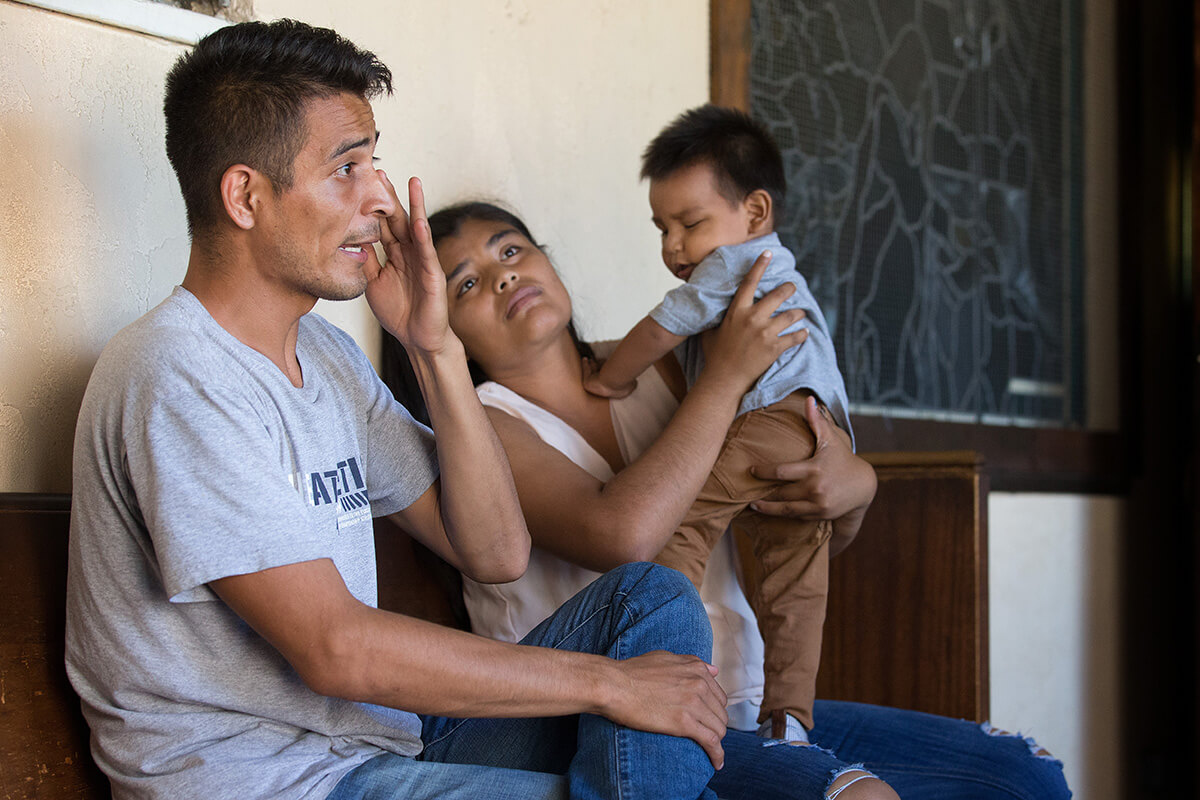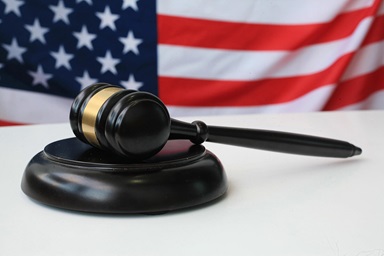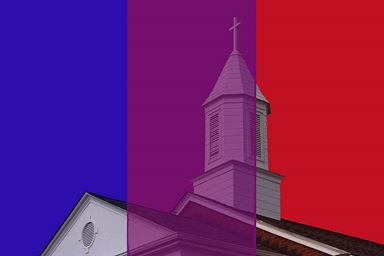Key points:
- Being welcoming to immigrants is one of the basic tenets of Christianity, mentioned many times in the Bible.
- Executive orders and actions by the Trump administration regarding undocumented immigrants are making many of them live in fear of being deported.
- United Methodists are speaking out and looking for ways to help undocumented immigrants, including offering guidance for churches.
United Methodists continue to speak out against measures put in place by the Trump administration to make it easier to deport undocumented immigrants.
There have been words of warning, encouragement and some practical advice on what to do when ICE agents knock on church doors looking for people to deport.

“The president’s proposed plan to deport millions of immigrants highlights a question of moral significance if we claim that we want to do no harm,” said Bishop Julius C. Trimble, the top executive of the United Methodist Board of Church and Society, during a Feb. 10 webinar, “Solidarity with the Sojourner: Understanding U.S. Immigration and Our Call to Respond.”
The webinar was hosted by the United Methodist Board of Church and Society, in collaboration with the Commission on Religion and Race, Immigration Law and Justice Network, the Council of Bishops Immigration Task Force, El Plan for Hispanic/Latine Ministry and United Methodist Communications.
The webinar took place a day before Religion and Race as well as the denomination’s New York, North Georgia and Western North Carolina conferences joined with more than two dozen Christian and Jewish bodies in filing a federal lawsuit against the Trump administration policy that allows immigration enforcement within houses of worship.
“Jesus does not give us the example of building walls and excluding the poor and the sojourner on the move,” Trimble said.
That ideal became newly urgent with the beginning of the second term of President Trump, who returned to the White House last month after defeating then-Vice President Kamala Harris. He immediately started issuing executive orders on many topics, one of the most prominent being immigration.

“Trump announced a series of executive orders and an emergency declaration that expand the detention machine and our country’s will and capacity to carry out mass deportations against immigrants,” said Melissa Bowe, an attorney and co-executive director of the Immigration Law & Justice Network, a United Methodist ministry.
“(Immigration Customs and Enforcement) is arresting multiple people at their homes, on the streets, in a public place, workplace or business,” she added. “Immigrant-owned businesses are particularly being targeted, as are businesses that are known to employ immigrants.”
ICE is doing “collateral arrests,” which means anybody in the vicinity of an ICE raid who is presumed to be undocumented is detained, Bowe said.
“It’s not just affecting undocumented folks with criminal histories. It is scooping up anyone, sometimes including United States citizens.”
The United Methodist Church’s stance on immigration is outlined in the revised Social Principles adopted by last year’s General Conference.
The document states: “We urge United Methodists to welcome migrants, refugees and immigrants into their congregations and to commit themselves to providing concrete support, including help with navigating restrictive and often lengthy immigration policies, and assistance with securing food, housing, education, employment and other kinds of support. We oppose all laws and policies that attempt to criminalize, dehumanize or punish displaced individuals and families based on their status as migrants, immigrants or refugees.”
Watch webinar
Significant executive orders that impact immigrants include:
•

The crackdown on undocumented immigrants has a strong element of racism, said the Rev. Giovanni Arroyo, top executive of the United Methodist Commission on Religion and Race.
“Immigration policies and enforcement disproportionately affect people of color,” Arroyo said. “Xenophobia, racism and cultural biases shape the way immigrants are perceived and treated in our communities. Too often, black and brown immigrants are criminalized, their dignity diminished, their humanity questioned.”
The Virginia Conference has offered guidance for churches who may be visited by ICE officers looking for undocumented immigrants, including:
- Have a crisis communication plan ready to execute, accounting for a variety of scenarios.
- Have a point person on campus at all times. This is the only person that should interact with agents.
- Have a notification plan so personnel are notified that agents are present. Tell agents that you need to let employees, volunteers, etc., know they are onsite for security reasons, particularly if there is a school at the site.
- Keep a list of immigration attorneys and organizations that you can give to those affected.
- All persons who witnessed the encounter should provide their narrative of what they witnessed.
- If there is security camera footage of events, secure the footage to ensure it is not erased.

- Have an experienced spokesperson to talk with the media.
- Consider having a crisis firm on retainer if you have a large immigrant ministry, staff or a private school.
“Persecution, wars, violence of every kind, economic poverty, climate change — they’re all contributors to this forced migration of sojourners on the face of this earth and in this United States,” said retired Bishop Minerva Carcaño, who leads the bishops’ Immigration Task Force.
“So many … siblings, these brothers and sisters who are sojourning, are living in existential fear. Men, women, young people and children are living in the fear that at any moment they will be separated from their loved ones and will never be able to see that mother, that father, that child, that grandmother, that uncle, ever again.”
Jesus said to “welcome the sojourner,” Carcaño added. “For in welcoming the sojourner, you welcome me.”
Patterson is a UM News reporter in Nashville, Tennessee. Contact him at 615-742-5470 or [email protected]. To read more United Methodist news, subscribe to the free UM News Digests.




